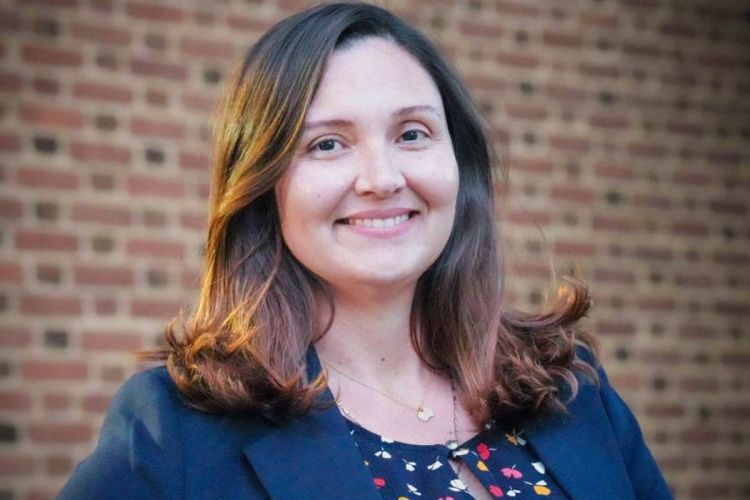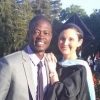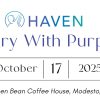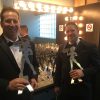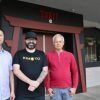By Chris Murphy:
We are at a crucial point in our society where we really need to make sure that education is a key priority for all. Education and curiosity are the fundamentals of our society. Curiosity leads people to explore new worlds. Education is the propeller to turn curiosity into accomplishments and realizing your dreams, no matter if they are big or small.
Research and science are the engines that propel innovation. However, innovation is impossible without the brilliant minds of inspired young people. Whether their path is college, discovering a vocation, or something else, our students must have opportunities that allow them to innovate. Our local public schools have to prepare all students for a variety of potential paths, educate new learners, welcome those from different parts of the world, and shape the future.
Modesto City Schools recently hired one of their own graduates for the top spot of Superintendent. Dr. Vanessa Buitrago exemplifies what education can accomplish. As a first-generation Latina college grad, she used her experiences at our very own Beard Elementary, Roosevelt Junior High School, and Modesto High School to reach her dreams. She has returned to us after successful tenures in similar sized neighboring districts: Oakland Unified School District and Sacramento City Unified School District. She received her doctorate from CSU Sacramento, and possesses degrees from University of the Pacific, San Diego State University, University of Ghana, and University of Southern California. In addition to education, she believes in the importance of family and credits much of the joy she feels to her husband and her kids, one of whom will be entering the UC system this fall and the other who is preparing to be a high school senior next month. Let’s meet Dr. Buitrago!
ModestoView: How did your experience at International Baccalaureate prepare you for the position you have today?
Dr. Vanessa Buitrago: In the past 20 years, people have told me that my work ethic is admirable and I approach life with humility. I attribute much of that feedback to the work habits I learned through K-12 education and the fact that nothing came easily to me as a kid. College, graduate school, and work have come naturally to me because of my experiences in the IB Program. What comes to mind when I think about my days in IB are long nights, hard work, lots of critical thinking, and goal setting. Most, if not all, classes were rigorous. In fact, I do not recall any course being “any easy pass.” I worked for (and earned) every grade I received. I was also meaningfully engaged and supported by specific teachers. I felt seen and cared for by Ms. Leilani Johnson, inspired by Mr. Michael Murray, and challenged by Mr. Chris Peterson.
MV: I am a big believer in public education being the gateway to accomplish anything you want to do. What stage in a student’s life is the most important for impressing the value of education?
VB: First day of kindergarten, or TK nowadays. What I appreciate about MCS’ “Every Student Matters, Every Moment Counts” phrase is that it captures a very real truth: Every single moment, every interaction impacts a student. A smile or a frown from a teacher will stay with a student forever. One instant can be forever magnified for a child and the adult may never know the harm or the good that they have done. Words matter; I think about comments from students like “I’m not good at math.” Such statements come from somewhere and it’s usually the classroom. The entire community, or village so to speak, is responsible for raising a child and instilling in them the value of education. We must ALL emphasize what education has the power to do for every student. Take my mother for instance- she made $13,000 per year give or take. She finished middle school but did not graduate high school in Colombia. She had no degree of any kind. However, she was a brilliant woman whose main dream for me was to finish school. With that at the forefront, she never let me get a job and she always insisted on me focusing on homework or studying. I owe her everything for that because I am in a position today where I have options. I can pick my career, position, etc. I can make personal decisions without feeling like finances are limiting my choices. Education has liberated me and will do the same for the young people we serve in Modesto.
MV: A school district the size of Modesto has to accommodate all abilities, many languages and abilities; what is the most challenging part of this for you and MCS?
VB: At this moment, in this specific context, I believe that we are limited by the political unrest and social dysfunction that come from othering or vilifying people who are different from us or those who we perceive to be different. If we spend the majority of our time and energy managing hate and discord, we are left with little time to truly make a difference in children’s lives. It deeply concerns me. MCS is very diverse and we must meet the needs of our English Learners and newcomers, our students with disabilities, our high achieving students who are thirsty for challenges, our many students who feel they do not belong because of the color of their skin or their socio-economic status, and everyone in between. We do not get to choose just one group to serve. We have to do everything in our power to ensure every student has the freedom I have had as a result of being educated.
MV: As a 1st gen college student in your family, how important is this goal in this current job environment?
VB: As an employer and someone who engages with industry leaders, I can confirm that we all want to hire people who are capable. It’s important for Modesto City Schools students to develop a sense of curiosity, initiative, responsibility, and independence. This can happen through education; education is not just about learning the Pythagorean theorem or analyzing the causes of World War II. Unfortunately, students struggle with connecting the dots between what they do in school and attaining a fulfilling career.
In terms of higher education, many students believe that education is a risk because it may not lead to employment. This is a fallacy. While a degree may not lead to a specific job with a particular salary right out of the gate, over time, education allows for promotion or advancement opportunities that a 17 year old may not be thinking about right now because turning 30 years old seems so far away. I also think that many young people are afraid of getting into debt by furthering their education. However, there are so many grants (money that does not have to be paid back) and scholarships that were not available when I was in high school. I also believe that we face a crisis of disbelief. We have so many young people who simply do not believe in themselves, their capacity for growth, or their ability to improve their current conditions.
MV: My mom was a teacher and I believe that teachers are some of the most significant people in a kids’ life, regardless of age; how do we keep the brightest and the best engaged?
VB: I think Modesto City Schools has already acted on one strategy that is critical to this effort: competitive salaries. We have to attract the best and recruitment is difficult when an organization pays less than comparable institutions. That being said, opportunities for professional growth and advancement are important. It is hard to stay in a system that does not allow you to evolve. Finally, appreciation and acknowledgment. This last factor is a challenge because everyone feels seen and heard in different ways. Some staff feel appreciated when we have ice cream socials or award ceremonies. Others value affirmation, timely responses to emails, etc. There are just many ways of showing people that you care. There are technical and adaptive solutions. Recruiting and retaining the best and the brightest are impossible if we lean into just one approach. We have to leverage all of the strategies and pull out all the stops. Most importantly, we have to keep our eye on the culture of our organization; a culture grounded in trust, healthy communication, and the belief that we CAN achieve our goals together. One unique challenge that is top of mind is that our teacher demographics are vastly different from our student demographics. Whereas slightly over 10 percent of our students are White, 60 percent of our teachers fall in this racial category. The inverse is true when we look at our Latino population: nearly 70 percent of our students are Hispanic/Latino, yet only over a quarter of our teachers identify with this ethnic designation. Instituting ways to support our educators from different backgrounds may allow students to see themselves in their teachers and may also help us employ more people from within our community. As a growing number of Latino students graduate from Modesto City Schools, our pool of future educators may look very different and we have to be ready to respond to what that might require in terms of professional learning and networking within our organization.
MV: I have teachers that changed my life. How do we recognize those that have this kind of impact?
VB: Yes, teachers have a huge influence on students. Their impact is probably greater than they know. Teachers who have a positive impact on their students have high expectations for themselves and their students. They believe that each student, regardless of their personal circumstances, can rise to the occasion. They demonstrate genuine care and approach their students as humans, not just pupils who are responsible for submitting assignments. Teachers who have a positive impact pique curiosity, inspire young people, and allow them to fail forward. They facilitate experiences and spaces that allow for learning rather than simply delivering information. When I was a special education teacher, I used to tell my students, “Be excited! We are going to use our brains today.”
MV: Education means so many different things, how do we make sure that we have a vocational career path for those that may not be on a college track?
VB: This is a tricky question. First and foremost, regardless of the path, all students must be able to read, write, and do math proficiently. They must also demonstrate solid executive functioning skills. While I agree that all students should have options available to them, I do not believe that the conversation is vocational versus college. Our system allows for both types of experiences and my priority is to ensure that students have as many open doors as possible so that if they may want to be an electrician today but then change their mind at the last minute and decide to pursue an engineering degree, they are able to do so. Having Career and Technical Education (CTE) courses that are coded as A-G means that students can get the vocational experience without sacrificing college eligibility. As educators, we cannot be gate keepers; we cannot track students into specific paths that could then potentially prevent them from achieving their dreams or advancing in ways that they never thought possible. This perspective is very personal for me. Although I was an IB student, my high school counselor and one of my math teachers told me not to bother with applying to college because college was not meant for people like me. That is precisely the experience we cannot replicate in our schools today.
MV: Does Modesto City Schools interface with the CSU, UC and MJC Systems for accelerated learning and admission.
VB: Yes, we do. We have relationships with all three systems, specifically Stanislaus State, UC Merced, and MJC. However, I believe we can always do more to offer more dual enrollment, direct paths for admission, and college awareness for elementary and junior high students.
MV: We have been big supporters of the Modesto IB system and have worked hard to promote it here in ModestoView and both of my daughters are IB grads. We have heard that enrollment is up and there are more tracks filled this season. What does this mean to a school like Modesto High?
VB: I have to admit that I will always want to see Modesto High School thrive. How can I not? It is one of the oldest high schools in California and the oldest in Modesto. As a school that opened in 1883, it is like a historical landmark. I think of the many generations that have gone though MHS and I feel tremendous pride to be a panther. While I support promoting IB, what I am most passionate about is promoting access to rigorous academic experiences for our student populations that are least represented in our advanced programs across the city. We see disproportionate enrollment and outcomes in our advanced programs like GATE, AP, and IB and we have to examine our practices that limit the number of Black and Latino students in reputable programs that effectively prepare students for college and career success. I believe IB can pave the way for our marginalized students at Modesto High School- as it did for me. In that sense, Modesto High School is positioned to be a school that changes lives for students and their families. I would argue that the same applies to all of our schools. We are talking about addressing generational poverty one student at a time at every school in our district. There are also enrollment implications as we’re talking about academic programming. Most districts in California currently face declining enrollment. Offering desirable, high quality programs like IB protects Modesto City Schools from losing enrollment and as a consequence, jeopardizing resources.
MV: Do you believe that both vocational learning and accelerated learning can be enhanced for the jobs and needs of the future.
VB: Absolutely. I have personally seen what dual enrollment and job training can do for students- both because of students I have taught and because of my own children.
MV: If you had an unlimited budget, what would you want to implement?
VB: I would want a personal life coach for every single student. Someone who is always available to engage in reflection with the student, offer guidance related to relationships, well-being and healthy habits, and advise on opportunities for success. Essentially, a life coach who will keep each student on track while also being the student’s constant champion.
MV: Describe your ideal Modesto day.
VB: I imagine being at a coffee shop sitting in a circle with students, just listening to them talk and reflect on who they are and what they want to accomplish in life.
MV: Beatles or Stones? I know it is a classic rock thing but still.
VB: Beatles. No question.


